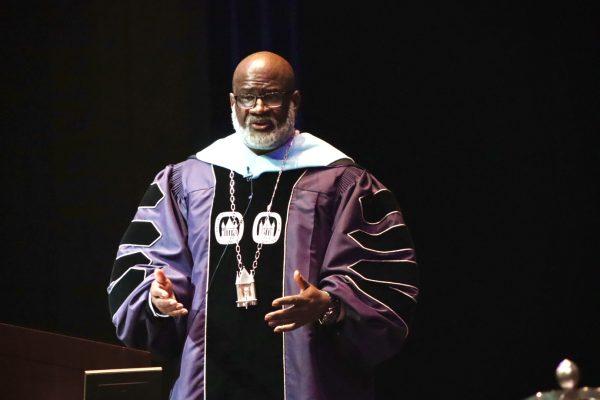Mental health and mustaches
Movember marks Men’s Health Month
November 14, 2021
With Men’s Health Month observed all throughout the month of November, some campus members recognize the progress made around the stigma faced with men and their health.
The movement is better known as Movember and is symbolized with a mustache to help raise awareness.
According to Movember’s site, men are dying on average five years earlier than women, and largely for preventable reasons.
Men globally are faced with prostate cancer, testicular cancer and account for 69% of all suicides.
On the UW-Whitewater campus, organizations such as Active Minds are working toward lowering that suicide rate.
Active Minds empowers students to change their perception about mental health by using the student voice to promote a dialogue around issues of mental health, they wrote on their Facebook page.
There is no denying that there continues to be a stigma around men and mental health. Within the organization, there are only about four male members out of the 30 total.
“It shows that the stigma is still there, in particular, more for males. We see that even within communities of color but more so in the male community. When you show emotions or have mental health concerns your masculinity comes into question for whatever reason, but I think that’s why we have organizations like Active Minds, to combat that stigma,” said Active Minds member Brandon Pope.
Good headway is being done to overcome the shame around it though, Pope added. As a resident assistant, he’s had more male residents feel comfortable coming to him admitting they are struggling and need help.
The Whitewater Student Government has also come out to show support.
University Health and Counseling Services offers mental and physical care for men to seek out as needed.
During the 2020-21 school year, UHCS served 1561 male-identified students, making them 41% of all students served.
“As an inclusive health center that serves transgender students, we approach this based on anatomy. For example, a person who identifies as male may have been born with a uterus and need an annual cervical exam. Whereas a student who identifies as female may have been born with a penis and need prostate exams,” said Wellness Coordinator Erica Fischer. “It also depends on if folks have had gender-affirming surgery. So it’s not a straightforward answer, but rather services are individualized to each student. With that said, the services we provide are generally available to all students.”
A full list of their health services can be found here and a full list of their counseling services can be found here.
Fischer suggested the stigma stems from toxic masculinity and that societal expectation to be masculine and strong keeps men from seeking help. In some cases, this toxic masculinity can be fatal.
She believes the stigma around men and their health can be combated with the following actions:
- End masculinity norms, gender-based roles, and stereotypes
- Create supportive, non-judgmental, validating environments where folks feel comfortable speaking about their wellbeing
- Model and encourage vulnerability and help-seeking behavior
- Educate ourselves on this topic and normalize self-care, including counseling
For more information, visit movember.com























Joyce Lofstrom • Nov 15, 2021 at 11:33 am
Glad to see this article on men’s health and that UWW has programs in place to help men on campus. Movember also encourages men to know about testicular cancer and see a doctor with any concerns.
I mention this as the mom of Whitewater alum – Max Mallory who graduated in 2015 in Media Arts and Game Development – MAGD. He died a year later of advanced testicular cancer.
Take care and speak up to take care of your mental health and physical health
Joyce Lofstrom
Harold A. Maio • Nov 15, 2021 at 7:09 am
—There is no denying that there continues to be a stigma around men and mental health.
That is not quite accurate:
—-There is no denying that there are those who continue to teach there is.
Harold A Maio, retired mental health editor